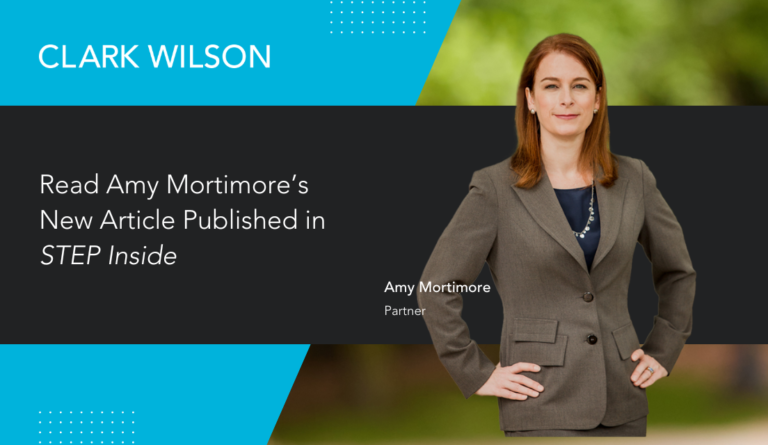Many countries around the world levy a tax on the transfer of wealth that occurs when a person dies, referred to as an estate tax, inheritance tax, or succession duty. The common feature is that they impose a tax liability based on the value of the property that transfers from a deceased person to their heirs. In many cases, estate taxes are combined with gift taxes so that the estate tax cannot be avoided by giving assets away prior to death. The United States, for example, has an estate and gift tax regime, currently at a rate of 40%, but subject to a myriad of credits and exemptions. The UK and most other European nations also have substantial inheritance taxes.
Although some Canadian residents become subject to other jurisdictions’ estate taxes because they are citizens of or hold property in those jurisdictions, thankfully Canada itself imposes no estate or inheritance tax of this kind. Here in Canada, the main sources of taxation on death are:
- taxation of accrued capital gains
- taxation of RRSPs and RRIFs; and
- probate fees that amount to a low-rate estate tax (in certain provinces).
Taxation of Capital Gains on Death
When a person dies, Canadian income tax rules deem that person to have disposed of all of the capital property that they own, and then to have reacquired it again, all at fair market value. If the fair market value of the property exceeds its cost for tax purposes, the person will realize a capital gain upon death. Property that has decreased in value will trigger a capital loss. To the extent that capital gains exceed capital losses, and the gain is not offset by other credits or carryforwards, a tax liability may arise on death as a result.
There are some exceptions: property transferred on death to a spouse, or to a qualifying trust for a spouse, will pass on a deferred basis and not trigger a capital gain. Also, the capital gain on a person’s principal residence is generally exempt from tax, subject to certain limitations.
Cash, savings in the form of GICs and bonds, and shareholder loans are examples of investments that do not appreciate in value and therefore do not result in capital gains on death. Shares in private or public companies and real estate are common sources of capital gains on death.
Taxation of RRSPs and RRIFs
If you hold a RRSP (or a RRIF) when you die, the general rule is that the RRSP will be considered to have been paid out to you. That means that the entire value of the RRSP is taxable income on your death.
If you designate your spouse as the beneficiary of your RRSP, your spouse will be able to roll your RRSP into their own RRSP and defer the taxation. Of course, they will be subject to tax when they withdraw the funds or upon their death. More limited deferrals are available where the RRSP is left to one or more “financially dependent” children or grandchildren who are either under the age of 18 or are dependent by reason of infirmity.
Probate Fees
A true probate fee (like the fee charged in Alberta) is a modest fee charged by the probate registry to process an application for probate or letters of administration. Eight provinces, including BC, levy probate fees of a different sort, which are based on the value of the assets subject to probate and without a maximum. These “probate fees” have been recognized by the courts as a tax and are in fact a crude mini estate tax.
In BC, our probate fee (tax) is charged at a rate of $14 for each $1,000 or part of $1,000 over the first $50,000 of value of the assets passing through probate, effectively a rate of 1.4%. No probate fees are payable for the first $25,000 in assets, and a reduced rate of $6 per $1,000 applies to assets between $25,000 and $50,000. Accordingly, probating assets of $1,000,000 in BC results in a probate fee (tax) of $13,450.
Probate fees apply only to the value of assets forming part of the deceased’s estate that pass under their will. That means that probate fees do not apply to:
- life insurance proceeds that are paid directly to beneficiaries;
- RRSPs and RRIFs that are designated to specific beneficiaries (rather than to the estate);
- assets transferred to other persons or trusts prior to death; and
- assets held in joint tenancy with others.
As a result, probate fees may often be reduced or avoided entirely. However, there are many traps in this area and proper advice should be sought.
Planning for Death and Taxes
Proper estate planning includes estimating all of the above tax liabilities that may apply on your death, and ensuring that your estate will have sufficient resources to pay them. Steps may also be advisable to cap or reduce exposures to the different taxes. However, this should only be done in consultation with knowledgeable professionals. Amateur “advice” from neighbours or friends on how to reduce probate fees or taxes often results in unintended consequences of a legal or tax nature, or both. Your death will likely be the largest financial transaction you will ever be involved in, so find good advisors and plan with care.



